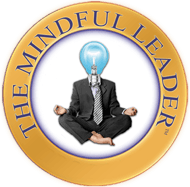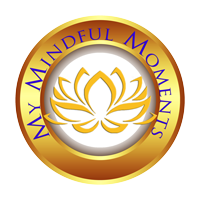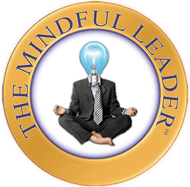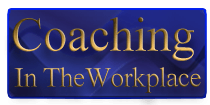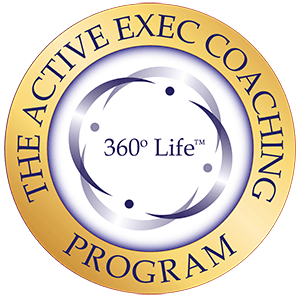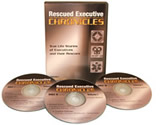Our past experiences are responsible for about 50% of who we become, as nature and nurture play equal roles in our development* and health. As we’ve found time and time again here on the Mindful Leader Blog, we can choose to either consciously participate in the process or allow whatever automatically happens to be it, as decided by the ego mind or whatever autopilot programs or habits we have running. Consciously participating begins with nothing more than an awareness of what is happening within, which you can begin to recognize in the moment if you direct your focus and are honest with yourself. One aspect of becoming more aware is beginning to realize some of the ways in which your past experiences have conditioned you to behave or react. Just by revealing to yourself that this has happened, you can begin to understand some of the ways you were affected and heal from those experiences.
This is not to say that all conditioning or past experiences should be reconditioned or create so-called negative results. On the contrary; if you were raised in a healthy, loving, emotionally supportive environment, then you probably won’t have much inner work to do at all as this will all come naturally. However, you may still find it comforting to know that, if something that you have believed for a long time doesn’t work in practice for you and your life, then you have the power and the ability to change that and create a different story.
Having said that, I want to dive into the one fundamental aspect of purposely expanding your awareness that anyone can put to use at any time: knowledge. This is especially true now, with the internet being available to most individuals. If there’s anything you want to know more about, you can access it within moments on a computer or smart phone and find many different perspectives on the topic. Applied knowledge is power, so the more you learn, the more knowledge your mind can tap into, the more powerful your ability to respond with understanding and a big picture perspective. How deep you want to wander into that rabbit hole is up to you and how many breakthroughs you can handle at once.
With all of that being said, I’d like to give you an idea about some of the main forms of subconscious conditioning we’re all subject to in daily life as we grow up and learn to make our own way. Each individual experience with these types of conditioning will vary, and not all conditioning will be detrimental to you. The fine details are something you will need to discern for yourself within your own life, but knowing that there are differences and ways in which we’ve been conditioned by systems in place can help you to define what works for you and what doesn’t. From there, you can focus on cultivating what does work and heal any uncomfortable realizations you may have.
Different Types of Subconscious Conditioning to Be Aware Of
- Familial Conditioning.
Everyone grows up in a family of some kind, and this is one of the most impactful and important environments for us as we grow up: our home life. Of course, there will be some level of dysfunction in most families as we are all human and no one is perfect, so your parents may not have always handled things in the best ways possible, but they may not have known how to. Sometimes there is also abuse, which can range from emotional, spiritual, and psychological abuse to physical and sexual abuse, but it is still only you who can break the cycle and do the inner work needed in order to get there.
While your experiences should always be validated and you may or may not receive that validation from the people who were involved, you can always give yourself validation and seek it from like-minded people who have experienced something similar. The deeper your level of understanding and knowledge, the more you will be able to peacefully love some people from afar and show compassion and forgiveness to those who are still in your life. It’s okay to not get along with everyone and to have a different perspective from the people you grew up around. It isn’t always easy, but there’s nothing wrong with it.
Many times, parents will send messages to their children unconsciously via repetitive words or actions such as withholding love, telling their children, “I know you better than you know yourself,” or, “I know what’s best for you,” and strongly resisting their children’s need to explore and learn for themselves due to a fear of them not coming to the same conclusions as the parents did. While concern for your child’s safety is healthy, overprotecting them doesn’t serve them in any way. When you tell your child, “I know you better than you know yourself,” and communicate to them—directly or indirectly, consciously or unconsciously—that the only right and wrong is the right and wrong you teach them, and they are scolded for exploring their own ideas and options, that depletes the child’s sense of trust in themselves and makes them heavily reliant on the parent for making decisions. Later on, when the child wants to grow up, this can result in excessive rebellion and troublemaking just to express their power to make their own choices.
Of course, these are just examples, but you may find some link to some family conditioning that may be detrimental to you. A common one is the lack mindset, conditioned into use further by statements such as, “Money is the root of all evil.” When we hear these things as children, we automatically assume that money is evil, when really we’re just given the same choice as with everything else: how to use it. Anything and everything can be used to either help or hurt, so it isn’t the thing itself that helps or hurts; it is the idea behind the thing that helps or hurts. Electricity can be used to cook a man dinner or to cook the man, as Bob Proctor pointed out in The Secret. Similarly, money can be used to invest in housing the homeless or building a bomb to blow them up. The decision to utilize something for “good” or “evil” lies within us.
- Societal Conditioning.
Western society is a pretty interesting melting pot, but there are a handful of things that society has conditioned us into believing that simply aren’t true, as much as they seem to be while we experience the manifestations they call forth. One very glaring example is that boys aren’t “allowed” to express their emotions unless it’s anger or victory. When this belief permeates a society like it does this one, young men are taught to suppress their emotions rather than dealing with them properly, and this can lead to all manner of dis-ease and energetic blockages as the boy grows up, not to mention translating into dysfunctional and unhealthy relationships as an adult simply because communication of emotion was not taught; suppression was.
Another very dominant example within this is class conditioning. For example, one family might not allow their children to play with a child in a lower socio-economic class, for no other reason than that they are from a lower socio-economic class. Labels are applied and, “so-and-so’s don’t hang out with so-and-so’s,” thinking adopted, and it becomes the normal for everyone involved. Let’s face it… in a world where cooperation and collaboration are exponentially more beneficial and powerful than competition, this paradigm simply cannot work sustainably.
- Religious or Spiritual Conditioning.
Many people have been raised to participate and believe in certain religious organizations and their teachings as if they are the truth… the only truth. This, “my way or the highway,” mentality also comes from a fear and lack structure, evidenced by the need to keep everyone feeling guilt, shame, and fear through various methods of control and subconscious programming. FOG is used quite often—fear, obligation, and guilt—to keep everyone “in line” and following the status quo.
Many times inadvertently, when a child is genuinely curious and begins asking questions about the religion that may challenge the authority, the question isn’t fully answered or the child is scolded for saying something blasphemous, which they wouldn’t even know is blasphemous because they’re just asking a question. This sends the message that asking questions isn’t okay, and the child may withdraw or find a new source of answers that isn’t so rigid and fearful.
As well-meaning as some of these systems and structures are, they can create more problems than solutions if people aren’t following the belief for the right reasons, and in order for each person to identify their path and make their own choice, they have to be allowed to explore. Because this curiosity and exploration is frowned upon from early on, it helps to kill people’s enthusiasm for life and thirst for knowledge, making them become more pliable and easy to control.
Again, this is only one example and an example of one level of extremes; not everyone experiences organized religion this way, and as a matter of fact, it helps a great number of amazing people make sense of life in a way that they normally couldn’t. However, you don’t have to have a specific religion to know and understand that there are bigger forces at work within the universe than what we may initially think. Science is recognizing the underlying energetic connections between everything in existence now, too, so it’s only a matter of time before more understanding about the mysteries of life are brought into the mainstream.
- Educational Conditioning.
Like most other human systems currently in place, the educational system is designed to teach people a controlled amount of information over a very long period of time, and much of the information being taught about science and history has been so watered down or is so out of date that it’s barely relevant anymore. The education system hasn’t changed much in over 100 years, and unfortunately it puts a damper on creativity, dumbs down brilliant students, allows students without an interest or ambition to skate by with minimal effort, and infringes on basic human rights such as going to the restroom when you need to.
While the intentions were fine when the system was created, it has become a prison within a prison, where children are taught that it’s better to blend in than stand out, it’s better to be dumb and attractive than to study and hone a skill, and that thinking for yourself and asking questions isn’t acceptable.
Once again, it’s up to you to break free of this conditioning and take your power back. While structure and leadership are important, innovation, creativity, and independent, critical thinking and learning are vital for living a balanced life and tapping into the confidence needed to be your best self. Many of us have issues with believing in ourselves because we’ve never dared to do that before. Why not try it out and see how it goes?
- Self-Conditioning.
Ah, last but not least. How you condition yourself comes down to one thing: how you feel about yourself and how you speak to yourself in your thoughts, also known as self-talk. Any thought you think repeatedly becomes a belief (Abraham-Hicks), so observe your thoughts and feelings about yourself. Many of us might get caught in thought loops like, “I’m going to be alone forever. Nobody will love me. Who would want someone so ugly/fat/broken/(insert self-deprecating adjective here)? I’ll never find love.” Do these types of thoughts seem even remotely true when you really think about it? Or are they simply your insecurities manifesting as thoughts, which you can eliminate by actively reminding yourself that those things aren’t true?
The way you speak to yourself has a direct impact on how you feel, and those feelings can give the thoughts more and more momentum. This is why it’s important to practice mindfulness and catch yourself before you pick up too much momentum in that direction. By doing so, you are showing yourself that you love yourself unconditionally, and that will steer your life in a whole new direction by attracting more of that unconditional love feeling. This can manifest in many ways, but the main thing you’re actually doing is changing the way you feel about and perceive life, rather than allowing life to dictate your experience to you.
A shift in consciousness often involves something you thought being true revealing itself to not be completely true, or to be false entirely from your perspective of understanding. No matter what this idea might have been, the universe is presenting you with the opportunity to challenge your own beliefs and become more grounded and confident in your truth, your sense of knowing.
Just in case you’ve already started thinking, “Well, who am I to claim my own truth? Who am I to say what makes sense?” The answer is that you are the only person who can come to your understanding on your own. Ask yourself, who are others to dictate your truth to you? I want to share a realization that might help you as it has helped me recently: No one has an objective perspective because everyone experiences life through the lens of their own perception, a perception that is all too often colored by the various forms of subconscious conditioning that we explored here today. I read this recently as a quote by Sterling K. Brown: “Nobody has an objective experience of reality. It’s all through our own individual prisms.” When we understand this, we can gain a wider perspective of almost everything in life, and we can more easily recognize unconscious behavior in ourselves as well as others and not judge it.
Thank you so much for being here! We hope you’ve found this information useful and that it helps you on your own mindfulness journey.
For more information about the Mindfulness Movement or the International Mindfulness Federation, please visit:
http://executivecoachinguniversity.com/mindfulness-movement


